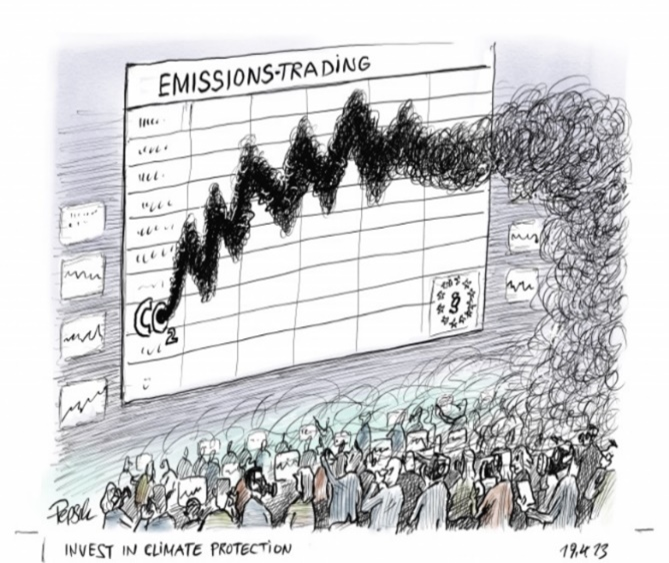Environment: Why attempts to lower CO2 emissions and global heating have failed so spectacularly

Since the beginnings of industrial capitalism 250 years ago, half a trillion tonnes of fossil fuels have been burnt and the resulting CO2 has been deposited in the atmosphere, leading to the current crisis of global heating. If business as usual (i.e., capitalism) continues, in about 35 years another half trillion tonnes will be released, which will push the global temperature to 2 °C, an irreversible level after which the temperature is likely to spin out of control.
Scientific Agreement and Global Accords
The concept of human-made global warming has been understood by scientists for at least 130 years, and the reality of global warming has been studied since the 1960s. In response to this reality, governments and international agencies have enacted a series of international accords and agreements, leading to the Paris Agreement of 2016 which committed 195 countries to keeping the rise in global surface temperature to well below 2 °C (3.6 °F) above pre-industrial levels.
The ’transition’ to a sustainable world has not begun in earnest. In fact, greenhouse gas emissions and global heating are getting worse.
Despite a plethora of global summits and climate agreements, CO2 emissions and temperatures continue to rise. In 2024, the concentration of carbon dioxide in the atmosphere is at its highest point in 800,000 years, according to UN research which also found 2024 was likely to have been the hottest year on record and the first to surpass 1.5C above pre-industrial levels.
It is estimated that fossil carbon dioxide (CO2) emissions in 2024 came to 37.4 billion tonnes, up 0.8% from 2023. Despite the urgent need to cut emissions to slow climate change, the researchers say there is still “no sign” that the world has reached a peak in fossil CO2 emissions.

‘Market Failure’ and the ideology of green capitalism
Climate change mitigation will not be easy, but it has failed so far not because it is complex and challenging but largely because it is currently based on market mechanisms. The concept of ‘market failure’ is a key ideological underpinning of green capitalism.
Market Failure theory is based on the fact that capitalist production makes use of natural materials as ‘free’ gifts of nature, either as production sources (such as minerals, plants, animals, oil) or as sinks, i.e., waste deposits (such as dumping grounds, rivers, the seas, the air). The argument goes that because pollution is unpriced, market actors (capitalists) currently have no incentive to discontinue using (and abusing) the resources of nature either as sources or sinks. Market failure theory says that a price should be put on nature’s free gifts so that the natural environment can be subject to capitalist efficiencies.

The state’s role is to encourage businesses to move away from fossil-fuel based production to production based on renewable and other ‘green’ energy sources, either by threats and punishment (fines and taxes for polluters) or through subsidies, preferential or concessionary financing, or favourable long-term contracts for companies developing or using non-fossil fuel energy sources.
With the help of enabling state structures, capitalism (which caused the pollution/global heating in the first place) will solve the problem and will bring us to a decarbonised future in which economic growth and pollution of the earth are no longer in lockstep.
The ‘market failure’ theory says that the price mechanism and competitive innovation between capitalists will reach the desired outcome of zero or ‘net zero’ emissions and climate stabilisation more ‘elegantly’ and efficiently than direct state involvement could. As a result, ‘inefficient’ and ‘old-fashioned’ state utilities should be forced to make way for a new generation of ‘disruptive’ green energy companies.
Activist and author Adrienne Buller notes that “misplaced emphasis on the efficiency achievable through the price mechanism ignores that some forms of carbon reduction are far more durable, effective (inasmuch as they swiftly and directly reduce emissions) and just than others. There is simply no example of a market-based transformation that comes close to resembling the scale and complexity demanded by the global replacement of fossil-fuel based infrastructure.”
Alternatives to the Market
Global heating and CO2 emissions have continued to rise over recent decades. When something substantial could have been done to mitigate emissions by the mobilised working class, instead this architecture of global green capitalism was taking shape, entering into mainstream discussion and popular culture.
Researchers from the left-wing thinktank, Trade Unions for Energy Democracy (TUED), note three specific failures of climate and energy policy based on market mechanisms:
- The first failure is “carbon pricing”, which has not remotely approached the breadth or levels required in order to be effective.
- The second failure is that efforts to “incentivize” private investment to decarbonize energy supply have not produced the levels of investment required.
- The third failure is that the neoliberal “energy-for-profit” paradigm has not only failed to drive the transition, but actually stands in the way of it.
In coming months, this website will publish a series of articles on these and other aspects ‘green capitalism’ globally and with a particular scrutiny of the Irish variants, North and South. We will show that introducing renewable energy projects through market mechanisms is bound to fail. We will argue that only state institutions are big enough and coordinated enough to prioritise what needs to be done to develop the decarbonised energy infrastructures that are required. And to fully achieve this, a socialist revolution is required.
